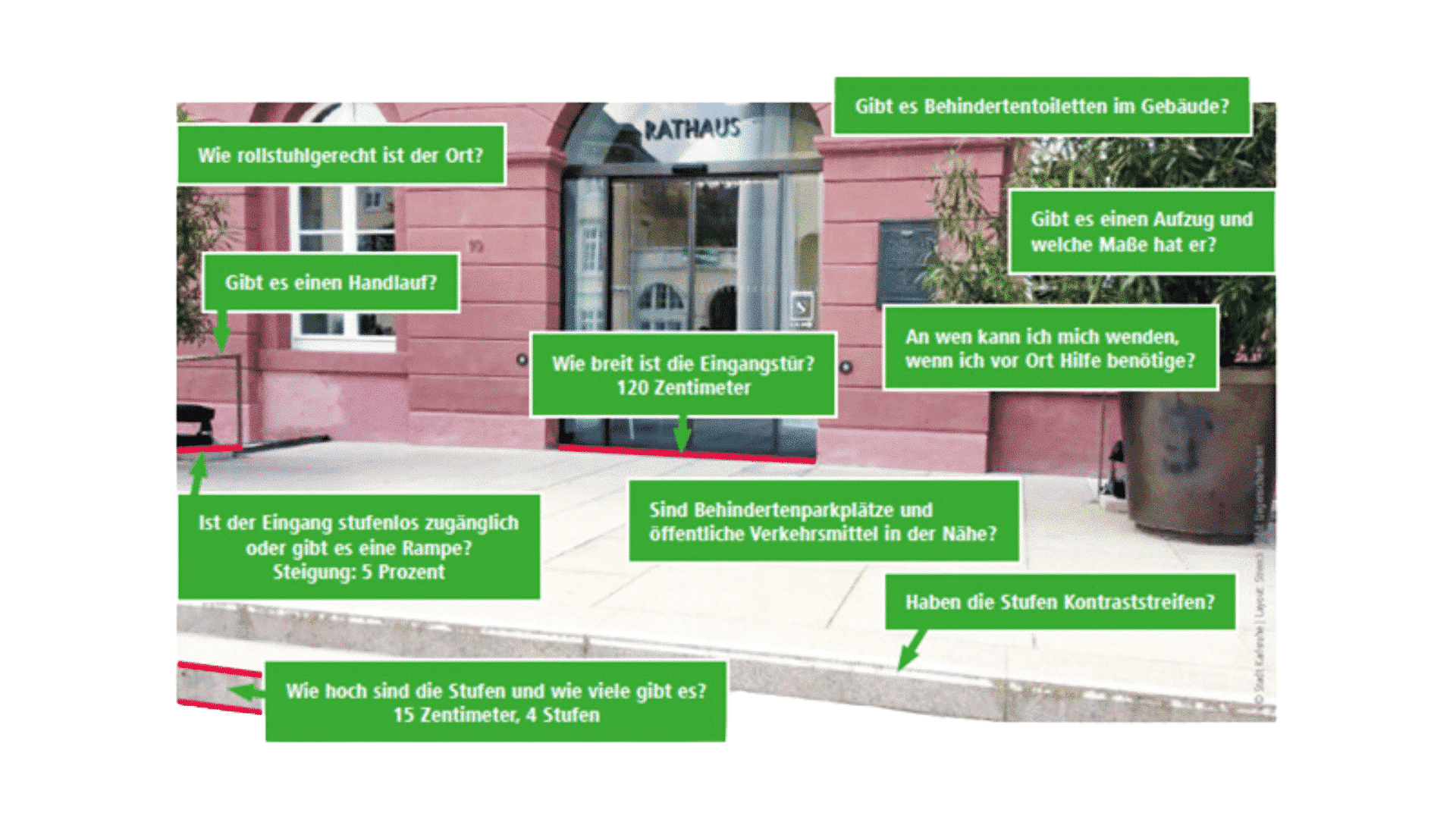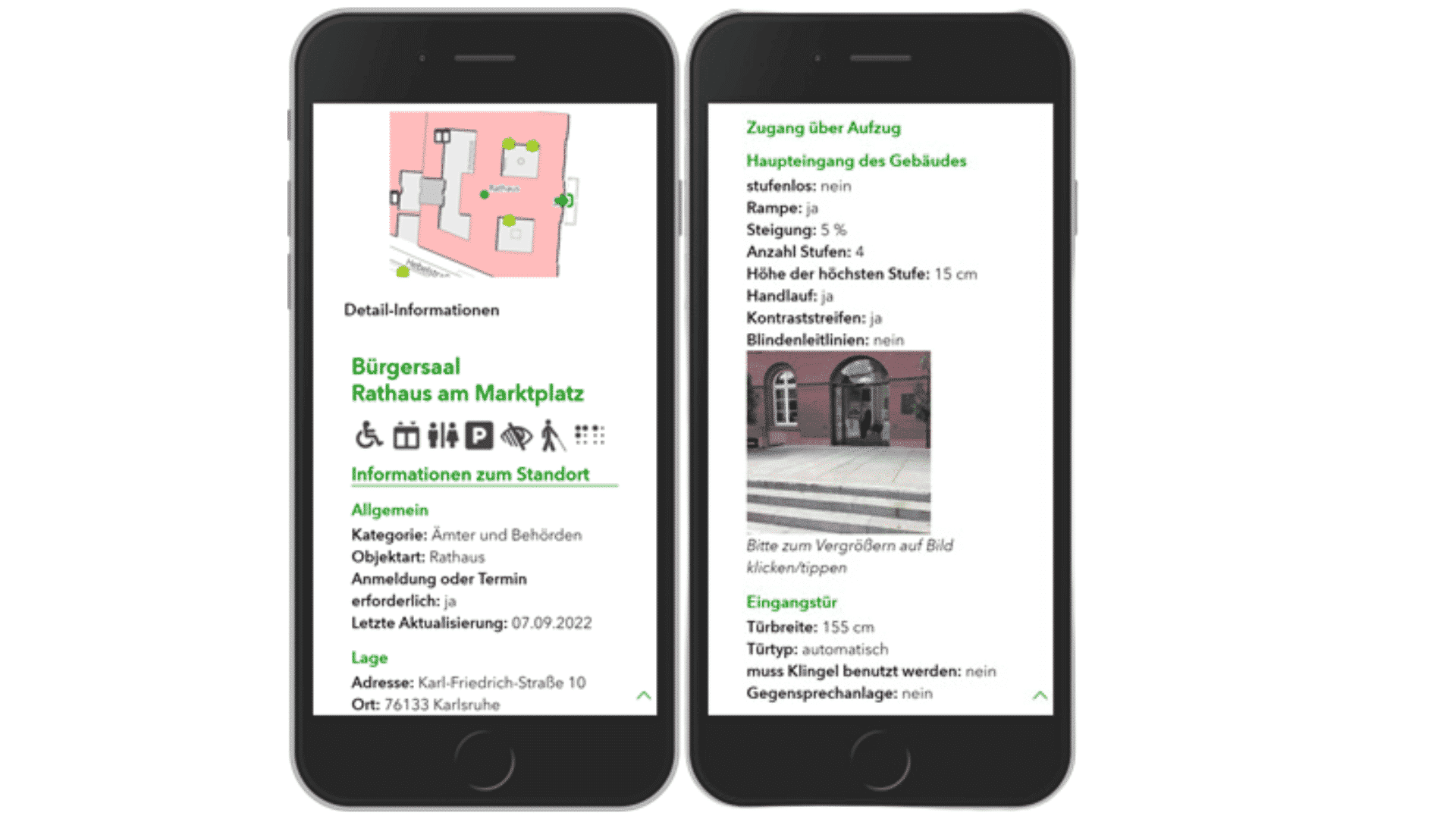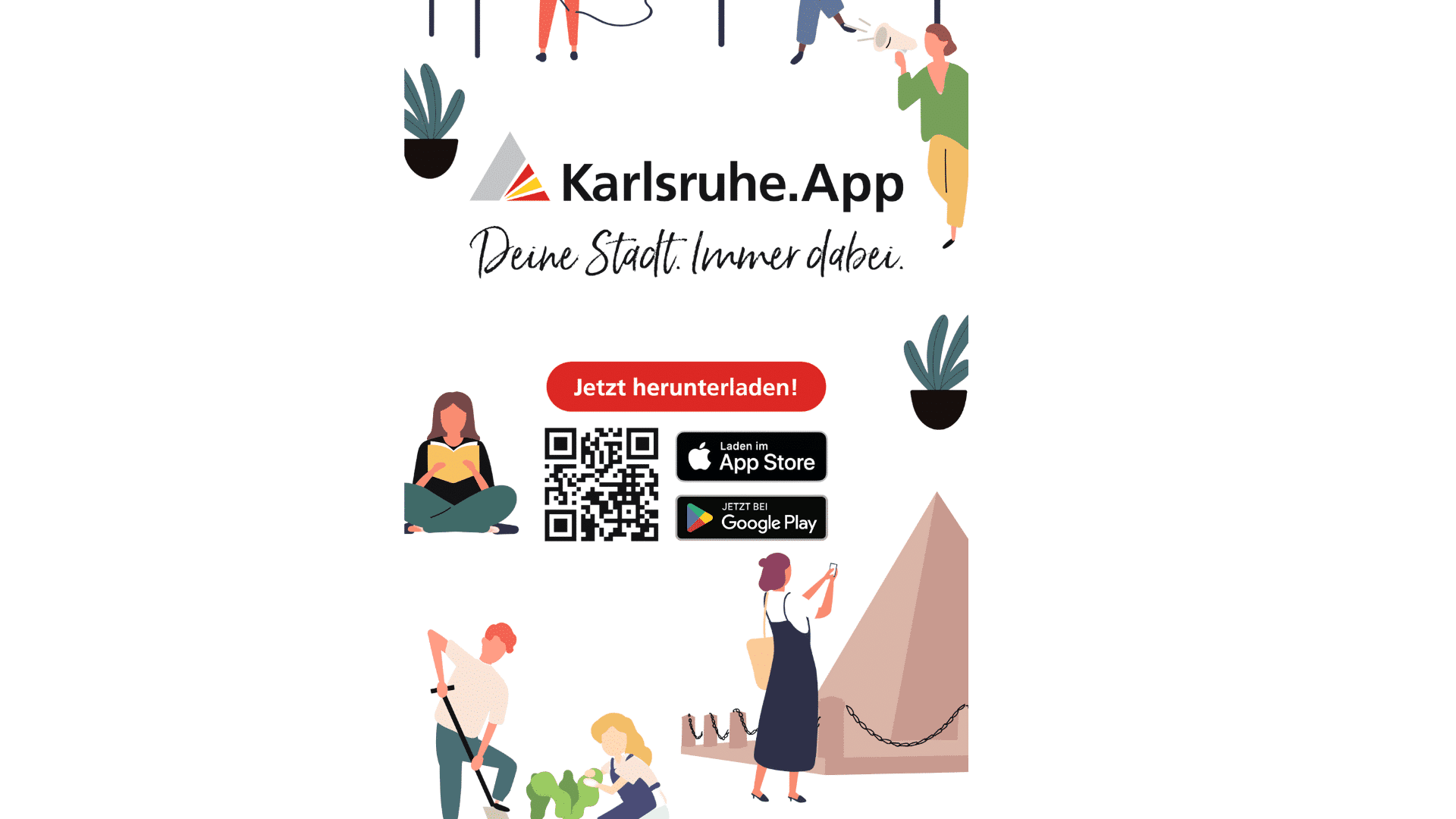Karlsruhe is so smart: The Smart City presents itself at the in-house exhibition!

The in-house exhibition on May 11 offers employees of the City of Karlsruhe a varied program of presentations, panel discussions and hands-on activities. The marketplace shows what makes Karlsruhe a Smart City.
Karlsruhe: smart, digital & networked
The Smart City Karlsruhe is characterized by numerous projects in the areas of mobility, administration, infrastructure, energy, as well as cultural and creative industries. u. v. m. from. And they will present themselves to their colleagues on May 11.
Employees of the City of Karlsruhe who would like to get to know the Smart City better will have the unique opportunity to experience the Smart City projects of the City of Karlsruhe live on the market square from 10 a.m. to 4:30 p.m., ask questions and try them out.
Included are:
karlsruhe.digital
karlsruhe.digital makes the strengths of the digital location visible and tangible. Karlsruhe is one of the most important IT hotspots: 4,800 IT companies with 30,000 employees, 10,000 students in IT-related courses, one of the most digital administrations in Germany and media art throughout the city characterize the fan-shaped city. The latest addition: the #SmartProductionPark in Oststadt – it addresses start-ups that are taking the digitalization of production to the next level.

The karlsruhe.digital initiative connects Karlsruhe stakeholders from science, business, culture and public administration with the aim of fostering the digital location Karlsruhe as driver of digitalization. With the city festival “Bunte Nacht der Digitalisierung” and the InnovationFestival @karlsruhe.digital, the initiative makes digitalization in and from Karlsruhe visible and tangible with two event highlights. The initiative also focuses on holistic communication and the acquisition of skilled workers, pooling expertise, promoting networking and addressing topics holistically in order to actively shape the digital future of the city.
On May 11, visitors will learn more about their city – one of Germany’s leading digital locations.
The digital twin of the city of Karlsruhe
The digital twin represents the digital image of the real city. It offers a collaborative platform that can be used by city administrators and citizens alike. On the basis of the digital twin, complex and dynamic relationships can be visualized and possible changes can be tested in advance in simulations. The digital twin is therefore a central foundation for the development of the smart city.

In a first step, the existing 3D city model will be expanded into a digital geo-twin, which will then form the geodata basis for the digital twin. The 3D city model will be expanded to include additional components, specialist data and real-time data will be integrated and accessibility for the city administration and the public will be optimized. This digital geo-twin will be presented at the in-house exhibition using the “Alter Schlachthof” prototype.

Virtual reality (VR) applications make the digital twin accessible and thus even more tangible. With this technology, the planned redesign of Kaiserstrasse and the new market square can be explored in virtual reality.

Karlsruhe as a science location
Over the years, Karlsruhe has become an important center of science and research. and research location. Numerous renowned university and Research institutions create an environment characterized by innovation. Future topics such as sustainability and digitalization are on the Agenda. In Karlsruhe, particular value is placed on the close Networking and the intensive exchange between science, business, Culture and urban society.

At the marketplace, employees can find out more about the events and projects of the Science Office: from the EFFEKTE science festival to the city festival “Bunte Nacht der Digitalisierung”, the InnovationFestival, KA-WLAN, the karlsruhe.digital initiative and much more.
Sensor City
In a pilot project at Friedrichsplatz The first small measuring stations have been installed, providing real-time measurement data via the LoRaWAN radio technology. This data can be transferred via interfaces in the geoportal and, for example, in the form of map-based visualized on interactive dashboards.

But also other live information, such as the operating status of elevators, or the occupancy of disabled parking spaces will in future be and can supplement applications, such as Karlsruhe barrier-free, with important information. The real estate office will be presenting various application examples of the sensor City at the in-house exhibition on May 11.
Karlsruhe barrier-free – The digital companion for people with disabilities Disability
Whether it’s a citizens’ office, restaurant or sports hall – many people visit public places every day and are dependent on barrier-free access. instructed.
Defective elevators or steps without a wheelchair ramp in the Entrance areas of buildings – all of this can be a problem in everyday life for people with mobility restrictions present insurmountable hurdles,” says Ulrike Wernert, Municipal Disability Officer of the City of Karlsruhe.
So that disabled and restricted people can find out about the accessibility of the place even before their visit, there is a interactive application (Web app) on the Internet. These can be used to and many other questions are answered:

At the stand, the real estate office will be presenting the new web app and demonstrating opportunities for participation in the expansion of the locations.

Karlsruhe.app – Your city. Always there.
Download the Karlsruhe.app now and try it out!
The “marketplace” is home to numerous apps and services (add-ins). The app also offers a large selection of information channels. You are always up to date with the calendar of events.

Visitors to the in-house exhibition can form their own impression, ask the team from the Office for Information Technology and Digitization questions and try things out.
Public utilities
At our stand on the marketplace, you can interactively experience a selection of sensors and possible use cases.
The sensors used rely on our LoRaWAN radio network active in Karlsruhe. The data can be viewed on site on a monitor in a customizable dashboard.

Radio-based sensors enable the cost-effective Automatic recording of information, without the need for expensive cables for power or for data transmission. Sensors that work with LPWAN-based (Low Power Wide Area Network) can send several years of data to the Battery until it needs to be replaced. Due to the wide range of possible applications processes more efficiently, data bases for decisions for the first time or documentation can be automated.
The network service will also be presenting the digitalization of the meter infrastructure in Karlsruhe with a demonstration wall. The central component here is the intelligent metering system, also known as the smart meter. In addition to the secure, data-protected remote reading of metering data across all sectors (electricity, gas, water, district heating), the smart meter is becoming the linchpin for secure grid operation in the context of increasing volatile feed-in and changing consumption patterns (electromobility, decarbonization of heat supply).